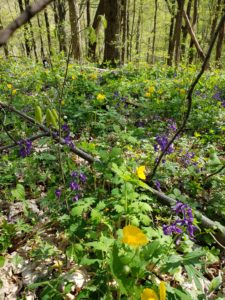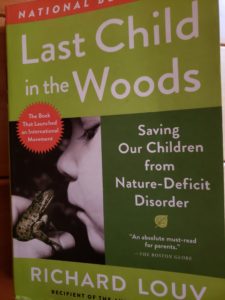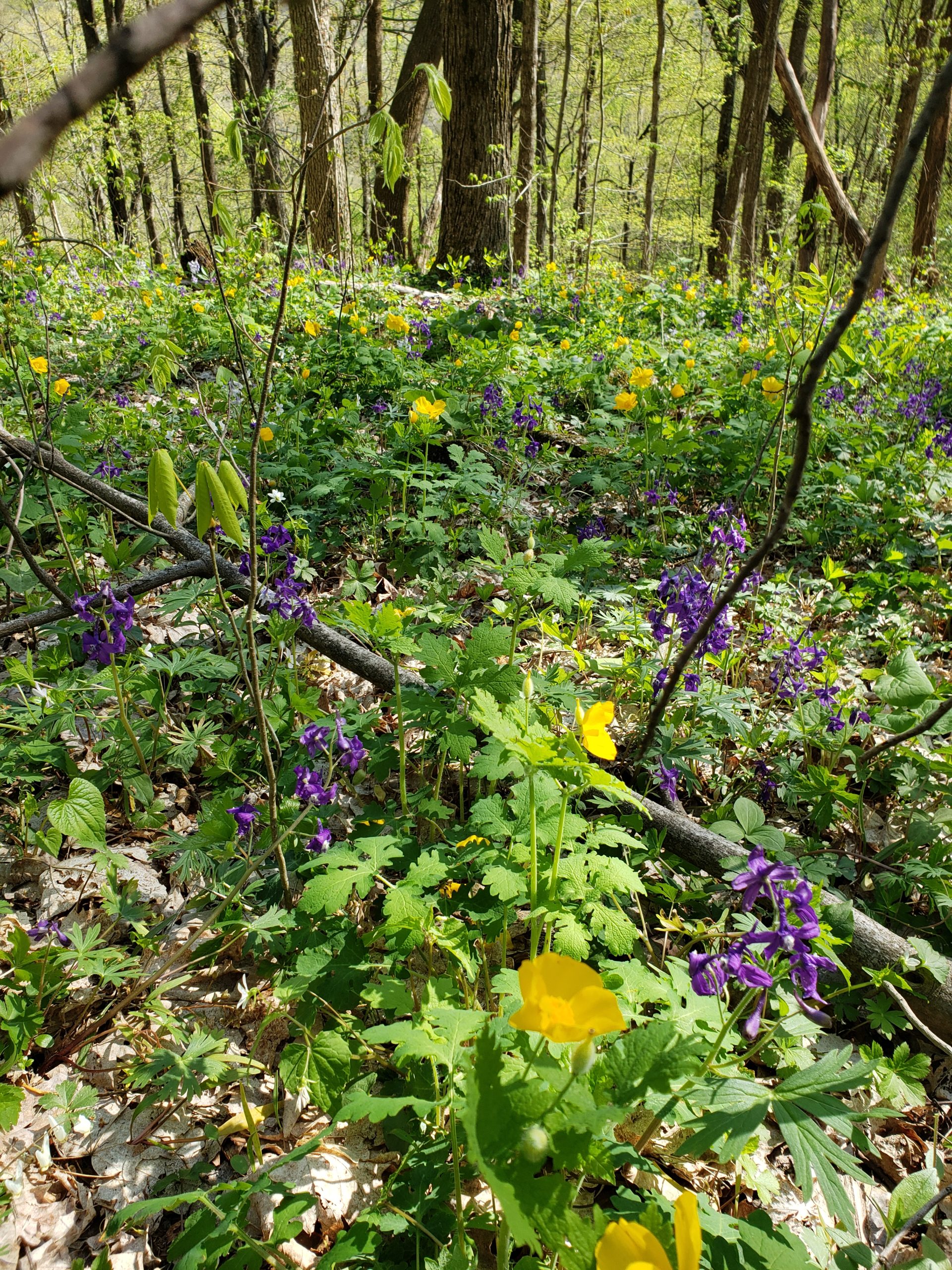Isn’t it odd how American society has had to designate time periods to remind ourselves to honor things we should be celebrating all the time? African American Heritage month, Native American Heritage month, Grandparents’ Day, and Earth Day are a few examples among many. April 22nd marked the 50th  Anniversary of the first Earth Day celebration.
Anniversary of the first Earth Day celebration.
This week’s Thinking Thursday Facebook post encourages kids of all ages to designate a special place outdoors, visit it often, and come to know it well. Chances are, we will fall in love with these places and will then act as caretakers for them. Once we develop this type of relationship with a single place, we can expand it, until it eventually includes the earth in general. This is the type of reciprocal relationship many cultures have with the earth, in recognition of the fact that our lives depend on it. After all, the earth provides everything to meet our basic needs. We can express thanks for that gift by taking good care of it. Earth Day reminds us of this responsibility. This is why every day should be honored as earth day.
By and large, our children live in a world where we have allowed an awareness of the role humans play in maintaining the earth’s cycles to almost disappear. Few seem to know the origins of the water they drink or even the food they eat, beyond the store where they can purchase both. Science standards require a focus on engineering skills, but the study of local flora and fauna, and even knowledge of local watersheds, is optional.
In addition, Richard Louv, author of Last Child in the Woods, writes “Our society is teaching young people to avoid direct experience in nature. That lesson is delivered in schools, families, even organizations devoted to the outdoors…Well-meaning public-school systems, media, and, and parents are effectively scaring children straight out of the woods and fields. In the patent-or-perish environment of higher education, we see the death of natural history as the more hands-on disciplines, such as zoology, give way to more theoretical and remunerative microbiology and genetic engineering…Yet at the very moment that the bond is breaking between the young and the natural world, a growing bo dy of research links our mental, physical, and spiritual health directly to our association with nature—in positive ways…As one scientist puts it, we can now assume that just as children need good nutrition and adequate sleep, they may very well need contact with nature” (pp. 2-3).
dy of research links our mental, physical, and spiritual health directly to our association with nature—in positive ways…As one scientist puts it, we can now assume that just as children need good nutrition and adequate sleep, they may very well need contact with nature” (pp. 2-3).
While we are staying healthy at home, we are lucky to have a governor who also emphasizes the importance of getting outdoors. I know that my twice-a-day walks are helping to keep me well. Whenever I feel my stress level rising, I head outdoors. As we encourage our children to do the same, there is no doubt they will discover the wonders of the natural world. They are there, just waiting for us to reconnect. What if each member of your family learned something new each day related to the natural world. Perhaps it’s the name of a bird or a flower. Perhaps it’s a new fact or nature inspired art. Setting aside time to share this learning means everyone will become more aware and appreciative of the ecosystems and waterways to which we owe our lives and upon which our future depends.


0 Comments